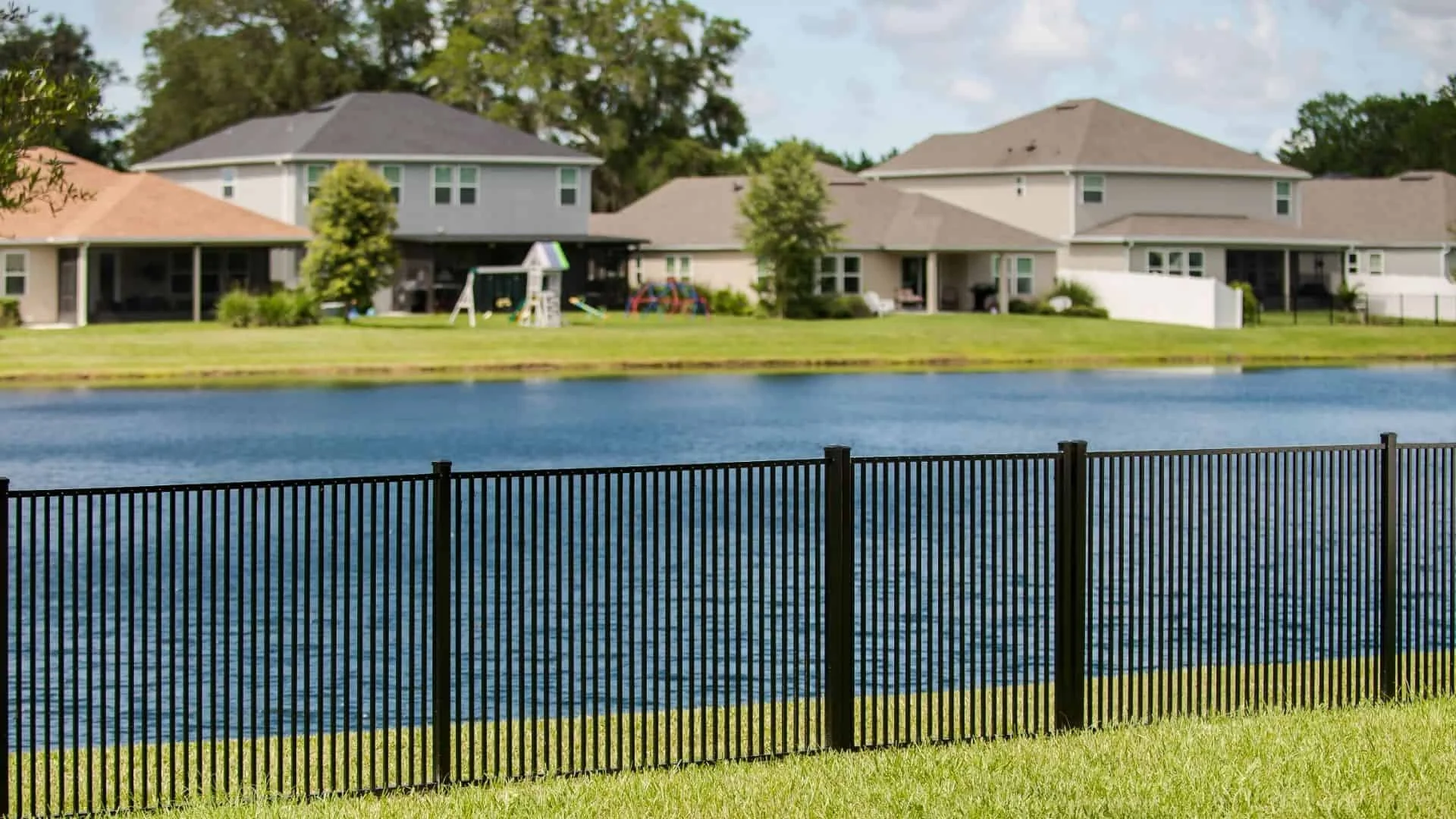

Volusia County’s coastline is much more than just sand and surf—it’s home to dunes, wildlife, and fragile ecosystems that protect both nature and property. A beach fence, properly designed, plays a big part in these natural defenses.
Dunes are naturally formed by wind-blown sand, but without barriers, wind and waves wash sand away. Specialized sand fences can help trap wind-carried sand, allowing dunes to build or re-build.
Beaches in Volusia County are critical habitat for sea turtles and other wildlife. Sand fences need to be made and positioned in ways that don’t trap animals or hinder nesting. Florida’s DEP and the Coastal Construction Control Line (CCCL) guidelines enforce spacing, materials, and placement restrictions to protect turtles.
Native plants, like sea oats, dune vines, etc., anchor dunes. A beach fence helps accumulate sand so plants can take root. Once the vegetation is established, you get a stronger, more resilient dune system.
In Volusia County, installing permanent beach or dune fencing generally requires a Beach and Dune Permit, especially when located within certain boundaries. Simple installation of sand fences outside of critical periods (like nesting season) may be allowed under certain conditions.
The weather patterns that affect the dunes also affect nearby homes and property values. When dunes erode, storm surge risks increase. If vegetation dies off, the visual beauty and natural buffer diminishes. Investing in coastal protection—via beach fence and related dune work—protects not only the ecosystem but also your home, your view, and your community.
If you live anywhere near the coast in Volusia—beachfront, near beach access points, or even just where salt air and storms carry inland—the same forces that damage dunes also work to degrade residential fences. Here’s how a residential fence installation with durability in mind mirrors the beach-fence logic:
A well-built residential fence—like the products installed by Superior Fence & Rail of Volusia County—is more than just an aesthetic choice. Find out how engineering and decades of experience factor into the design of Superior Fence & Rail’s beach fence.
Corrosive salt air by the shore will significantly shorten the lifespan of most steel fences, or any fence with metal fasteners (like most wood and many lower grade vinyl fences). Vinyl is also popular for its easy maintenance and excellent privacy. Where vinyl fence can falter is in wind durability: low-grade vinyl is like a sail in high winds—the opposite of what you want from your beach fence.
Superior Fence & Rail’s vinyl is built better. It’s 100% routed (no metal fasteners) and 41% heavier than industry standard vinyl fence. Combine that with custom engineering like StayStrong and SolarShield that give extra strength in the face of wind and protection from UV rays, and you simply have the toughest vinyl beach fence on the market.
If vinyl doesn’t fit the character of your home, Superior Fence & Rail’s aluminum might be just what you’re looking for. Naturally corrosion resistant aluminum is powder coated for enhanced protection against the elements in your choice of colors.
It doesn’t stop with color—aluminum is easily Superior Fence & Rail’s most customizable beach fence option. Talk to their fabrication specialists to custom craft a fence that truly sets your home apart.
Wood fences aren’t always the first thing you think of as a beach fence, but when you combine affordability and versatility, wood can come out on top. The secret to making a wood fence work in a harsh climate is going with a high quality product, installing it professionally, and making sure it’s backed with an excellent warranty.
That’s what you get at Superior Fence & Rail. Their wood fence is pressure treated to resist rot and insect damage, handled by expert in-house installers who understand how to do a job right, and protected by outstanding product and workmanship warranties—including a lifetime warranty on posts and rails against rot and insect damage.
When choosing a fence for a home in Volusia County, remember:
A beach fence may seem like a solution for dunes and public beaches, but the principles—durability, wind and salt resistance, low maintenance—apply perfectly to your home.
If you’re ready to protect your property with a fence that stands up to Volusia’s salt air, storms, and seaside climate, Click Here for a free estimate. Superior Fence & Rail is ready to install your home’s new first line of defense—a beautiful new fence.
Great Fences Make Great Neighbors!
Your Superior Fence and Rail service team is standing by! Get a fence installation quote today!